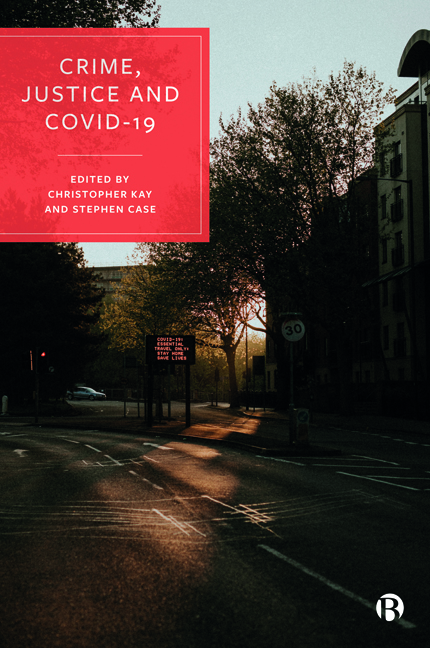2 - Emergence and Maturity in Policing COVID-19
Published online by Cambridge University Press: 20 January 2024
Summary
Introduction
The early decades of the 21st century have provided many dramatic examples of the police's role in managing the emergent risks of society. This drama of policing is more evident today, perhaps because of the prevalence of crime but certainly because of the pervasiveness of social media. Through this recent form of media, people become acquainted with the day-to-day risks of police work as officers attend to street incidents, assaults, car crashes and the like. Common incidents such as these are captured on the smartphone cameras of passers-by and posted to global platforms. Through this process, in some rudimentary way, the public becomes increasingly well versed in the difficulties and decisions that confront every frontline police worker. Alongside day-to-day incidents, there are also less common but historymaking traumas of flood, fire and terrorism. Again, the smartphone camera is usually in the vicinity of the ordeal and so the public quickly come to witness the diverse and difficult decisions that police officers must make in the face of some emergent actuality that they cannot yet comprehend.
At its front line, the police service is a kind of risk management service, whether working in response mode to some dangerous event or proactively urging caution on populations of drivers, clubbers, drug users, gangs or some other segment. Society has its activities, these activities carry risks, and when these risks threaten to overwhelm, the police are called to action. That the police act as a kind of risk response and management service is not a new idea. Arguably, policing is society's public service of last resort. Risk is intrinsic to police work. The types of risk encountered when attending incidents are very diverse. Consider anew undertaking a routine traffic stop, marshalling cars through a busy junction, finding a lost dementia sufferer, taking care of children after an incident of domestic violence, attending to an ill person on the street or giving chase to criminals in a car. Such situations are dealt with using special knowledge, special training and bespoke risk management procedures.
Yet not all risks are known and can be foreknown. Nor can everything about a known risk be prepared for in advance. It is in the character of work on the front line that new situations will unfold. There is always an element of the unpredictable.
- Type
- Chapter
- Information
- Crime, Justice and COVID-19 , pp. 11 - 30Publisher: Bristol University PressPrint publication year: 2023



